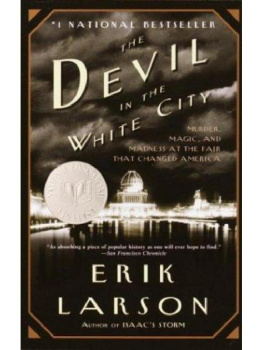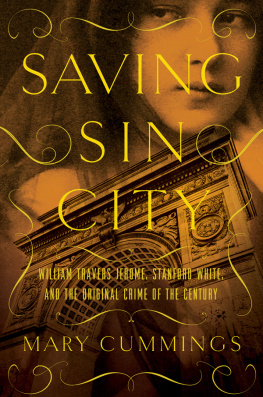Cover copyright 2018 by Hachette Book Group, Inc.
Hachette Book Group supports the right to free expression and the value of copyright. The purpose of copyright is to encourage writers and artists to produce the creative works that enrich our culture.
The scanning, uploading, and distribution of this book without permission is a theft of the authors intellectual property. If you would like permission to use material from the book (other than for review purposes), please contact permissions@hbgusa.com. Thank you for your support of the authors rights.
Mulholland Books is an imprint of Little, Brown and Company, a division of Hachette Book Group, Inc. The Mulholland Books name and logo are trademarks of Hachette Book Group, Inc.
The Hachette Speakers Bureau provides a wide range of authors for speaking events. To find out more, go to www.hachettespeakersbureau.com or call (866) 376-6591.
The publisher is not responsible for websites (or their content) that are not owned by the publisher.
E DNA G OODRICH SETTLED INTO HER SEAT AS THE HORSE PULLED away from the curb. The coachman flicked his whip, pulling gently on the reins to steer the chestnut-brown mare into the street. The lunch hour traffic had dispersed, and Thirty-eighth Street was now almost deserted. The horse cantered eastward, toward Broadway.
Goodrich glanced at the young girl seated beside her. Evelyn
The carriage, suddenly stuck in the congestion of wagons and carts that crawled south along Broadway, almost came to a stop. The girl released the grip on her hat and turned to interrogate her companion.
Who was Stanford White? she asked. Why had Edna pestered her so insistently to accept his invitation? Since Evelyns first appearance on the stage, six weeks previously, dozens of men had tried to attract her attention. They sent her flowers; they shouted her name from the stalls; some waited for her at the stage door. What, she inquired, was so special about Stanford White that they should spend an afternoon fighting the traffic to get across town to visit him?
Edna Goodrich, amused that Evelyn remained unaware of Stanford Whites existence, patted the girls hand reassuringly. White, she replied, was a great man, perhaps the greatest man in New York. He was the architect who had
Edna Goodrich was feeling pleased with herself. Stanford White had mentioned to her, several weeks earlier, the photographs of Evelyn that he had seen in the New York World. Who was this new girl? he asked. How could he meet her? Goodrich, one of the singers in the Florodora sextet,
The carriage left Broadway, turning onto Twenty-fourth Street, finally coming to a halt before a brownstone house set back from the sidewalk. Evelyn Nesbit looked up in surprise, disappointed that their rendezvous would occur in such a
Edna Goodrich paid the driver his fare and was now ascending the steps to ring the bell. The door opened inward automatically at her touch, without that familiar click that would indicate the release of a lock, and she began climbing a flight of rickety wooden steps to the second floor.
Evelyn Nesbit stood in the doorway, looking up into the darkened stairwell.
Where on earth are we going? she asked anxiously.
Its all right, Edna answered, pausing to reassure her friend. Come right along. Go on up, she added cheerfully.
Evelyn began to follow her companion, and as she started up the steps, a door opened at the top of the stairwell.
White stepped backward as Evelyn entered the room. He gazed at her, admiring her figure, his eyes lingering
He glanced momentarily at Edna Goodrich, giving her a look of appreciation that she had introduced him to this marvelous vision. A second man, Reginald Ronalds, approached, and both men listened attentively as Edna Goodrich introduced Evelyn, telling them that Evelyn had recently joined the chorus in the musical Florodora playing at the Casino Theatre. Evelyn was a newcomer to the city, having moved with her mother and younger brother to New York only eight months before, in December 1900.
Stanford White introduced his friend to Edna Goodrich and Evelyn Nesbit. Reginald Ronalds, thirty-five years
The dining table had been set for four people. The two men fussed over Evelyn during the luncheon, teasing her for her girlish appearance, bantering with her, and peppering her with questions. Did she find New York as glamorous as she had imagined? How did she like her role in the Florodora chorus? Where did she dine? Whose invitations had she accepted? Did she prefer Delmonicos or Rectors for supper? Evelyn gave her attention more to Reginald Ronalds than to Stanford WhiteRonalds was the younger, better-looking man, six feet tall with blue eyes and blond hairand he joked and flirted with her, appearing all the while solicitous for her welfare, forbidding her to drink more than a single glass of champagne.
Evelyn relaxed; her shyness had left her; the champagne had washed away her inhibitions and she had forgotten her initial apprehension. She felt a slight disappointment that Reginald Ronalds had to leave earlyhe had to go to his office, he explainedbut Stanford White invited his other guests to stay a little longer. And neither Edna Goodrich nor Evelyn Nesbit was in a hurry to depart; both women were in Florodora, and the evening performance did not begin until seven oclock.
Stanford White suggested a tour of the house. They ascended the stairs, bypassing the rooms on the third floor, climbing to the topmost level. A large studio with a high ceiling ran the entire length of the fourth floor. This room, like the dining room, was elaborately decorated: artificial light illuminated the red velvet curtains that shut out the sunlight; antique divans and couches, covered with velvet cushions, lined the four sides of the room; and a card table and four chairs stood near the windows at the front of the building.
A swing, attached to the high ceiling by two velvet cords, hung in the center of the room. A large circular paper screen, stretched taut in a thin wire frame, was attached to a pulley suspended from the ceiling. This screen, decorated with a Japanese motif, could be raised above eye level so that it hung directly over the swing.
Stanford White took Evelyn by the hand, helping her to sit on the padded velvet seat of the swing. Edna Goodrich stood a few feet in front of her, pulling slightly on the rope to raise the Japanese screen. Evelyn could feel Whites hands on her back, pushing her higher and higher so that her outstretched feet came closer and closer to the screen. Edna, holding the rope in her hands, began to laugh as she watched Evelyns futile attempts to touch the screen with her feet, and Evelyn also started to laugh at her own helplessness. No matter how hard she strained in her seat, no matter how she urged herself forward, her feet could not pierce the screen that hung invitingly a few inches in front of her.
Evelyn realized that White was controlling her movement with his hands, pushing her just so much, so that despite her efforts, she could not break the paper. But finally, with a single strong push of his hands on her back, Evelyn soared higher than before and her feet split the screen in two.
White replaced the torn screen and Edna Goodrich now took her turn, climbing onto the seat of the swing. Evelyn held the rope, lifting the screen into the air, laughing in her turn as Edna also eventually pierced








